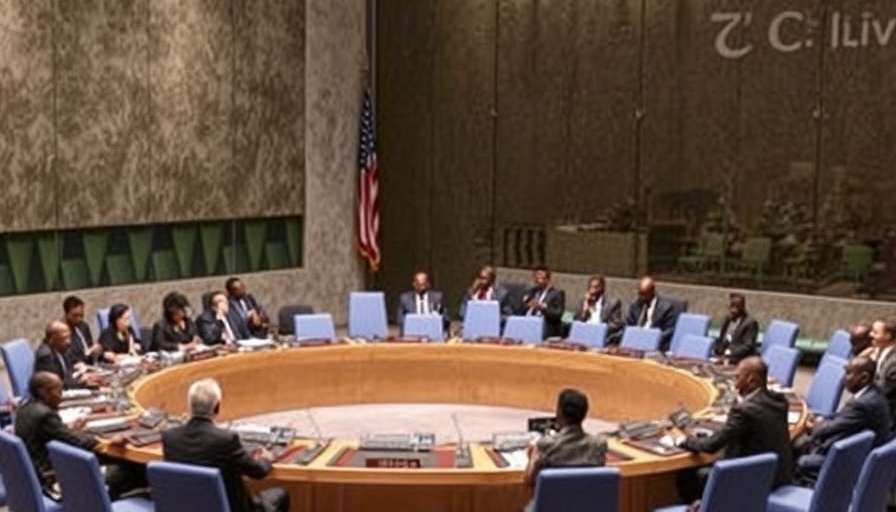
Implications of Renewed Sanctions on the Congo
The UN Security Council's decision to renew the sanctions regime on the Democratic Republic of the Congo (DRC) marks a significant moment in the intersection of global diplomacy and African governance. These sanctions, initially imposed in the late 1990s, have evolved to address issues related to human rights violations, armed conflicts, and the illegal exploitation of natural resources. As Africa's role in the global economy expands, particularly in raw materials extraction, understanding the impact of these sanctions is critical for business leaders and policymakers alike.
Africa's Global Economic Position Amid Sanctions
The sanctions primarily target individuals and entities linked to violence and corruption, influencing the broader political landscape in the DRC and its regional allies. Since the DRC is a key player in the African economy, particularly through its mining sectors, sanctions pose potential risks to foreign investments. With global trade increasingly reliant on African minerals, investors must navigate these geopolitical waters cautiously.
Geopolitical Considerations Surrounding the DRC
Recent adjustments to the sanctions reflect a balancing act aimed at improving governance while ensuring regional stability. The international community is closely monitoring the DRC's compliance, particularly as it seeks closer economic ties with nations like China and members of the European Union. The success or failure of these sanctions could set a precedent for future governance frameworks across Africa.
Future Prospects: Balancing Sanctions and Sovereignty
Looking ahead, the question emerges: How will the DRC adjust its internal policies in response to these ongoing sanctions? If the government can foster a climate conducive to trade while respecting human rights, there is potential for economic growth even under the shadow of international scrutiny. For stakeholders in the region, prioritizing stable governance and transparency may not just appease international demands, but also bolster local economies.
As Africa continues to be a focal point for geopolitical interests, keeping abreast of developments in governance and trade policies is essential. For business leaders and investors, building a strategic understanding of political dynamics can help navigate challenges posed by these sanctions effectively.
 Add Row
Add Row  Add
Add 


Write A Comment